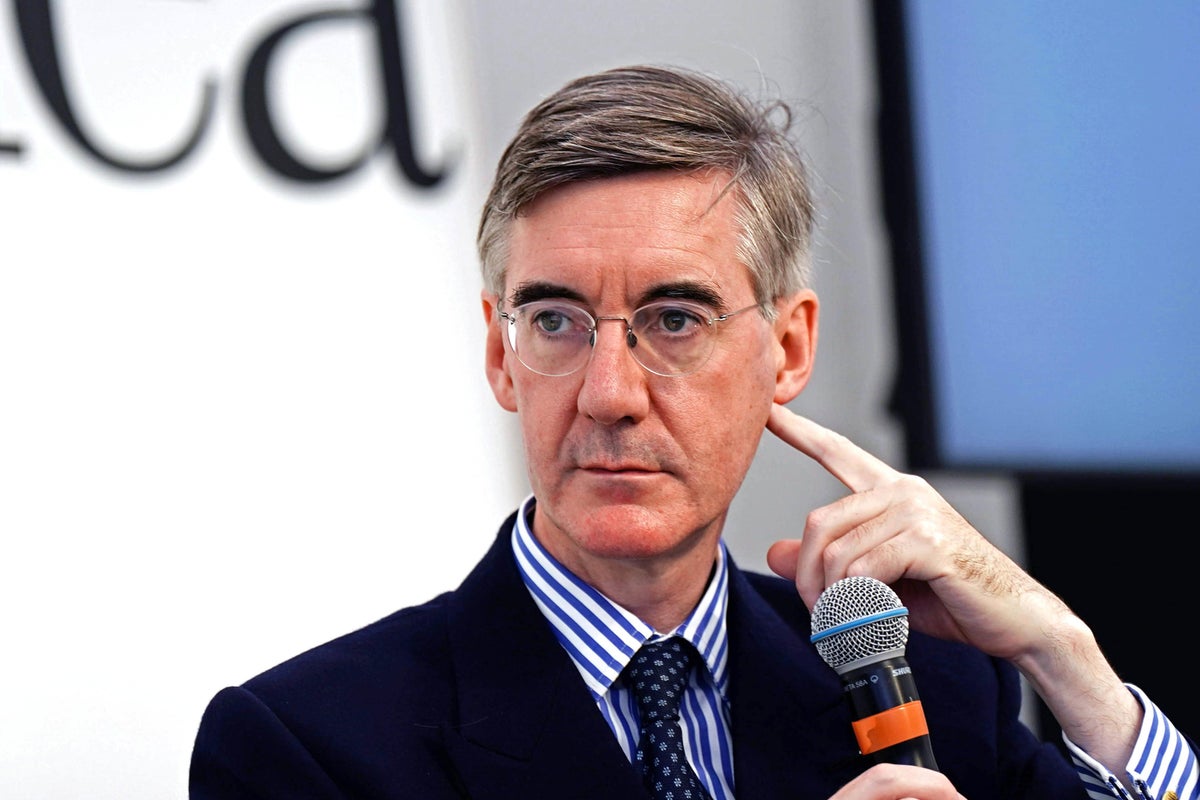
Downing Street has administered a slapdown to Jacob Rees-Mogg after the business secretary publicly denigrated the government’s official economic forecaster and suggested the chancellor might ignore its findings.
Mr Rees-Mogg’s broadside against the Office for Budget Responsibility was greeted with incredulity by economists, with one saying that its input was vital to the credibility of any statements made by chancellor Kwasi Kwarteng.
And today, Liz Truss’s official spokesperson said the prime minister had full confidence in the OBR’s ability to forecast accurately.
The spokesperson also said that the IMF – which came in for another tongue-lashing from Mr Rees-Mogg – played an “important role”, which was valued by Mr Kwarteng.
The business secretary’s highly unusual criticism of the independent budgeting watchdog came just days after the OBR delivered its initial assessment of the impact of the chancellor’s 23 September mini-Budget to the Treasury.
His comments sparked speculation that the findings are damning and that an effort is underway to undermine faith in them before the eventual release of their final verdict on 31 October.
Speaking on ITV’s Peston on Wednesday, Mr Rees-Mogg said that the OBR’s “record of forecasting accurately hasn’t been enormously good”.
He added: “The job of chancellors is to make decisions in the round rather than to assume that there is any individual forecaster who will hit the nail on the head.
“There are other sources of information. The OBR is not the only organisation that is able to give forecasts.”
But asked on Thursday whether Ms Truss has confidence in the OBR’s ability to deliver accurate forecasts, the PM’s official spokesperson replied: “Yes.”
They said: “The OBR is the government’s official forecaster and the prime minister has said on a number of occasions that she values their scrutiny and respects their independence. They are a highly regarded body worldwide.”
Asked which alternative forecasts are available, the official said: “It is true to say that other forecasts are made and it’s important to consider all available evidence and views when making these sorts of important decisions, but the OBR remains the government’s official forecaster.”
Pressed on whether it was helpful for Mr Rees-Mogg to disparage the OBR, they said: “The OBR are very transparent and recognise those are the challenges when you are making forecasts themselves. But, nonetheless, their work is highly respected worldwide.”
Paul Johnson, the director of the Institute for Fiscal Studies think tank, said that it was clear that economists could never be entirely accurate in their predictions about the future.
But he said that, contrary to Mr Rees-Mogg’s implication, the OBR had previously had a record of painting an overly rosy picture of the economy, rather than being excessively gloomy.
“The OBR has historically been over-optimistic consistently on the economy,” said Mr Johnson. “The economy has actually done worse than the OBR has suggested”.
He added: “Of course they matter. It’s really important for credibility, which has become so important over the last few weeks, that we have these official forecasts and the chancellor responds to that by saying: ‘This is how I see my fiscal policy’.”
Earlier in the day on Thursday, Mr Rees-Mogg said that figures from the Office of National Statistics could not be relied upon and suggested that the Bank of England might be to blame for the market panic which followed the chancellor’s mini-Budget.
His views were given short shrift by economic experts.
Nigel Peaple, director of policy and advocacy at the Pensions and Lifetime Savings Association, said the market turmoil was “caused mainly by the mini-Budget [and] uncertainty about the government’s plans”.
Deutsche Bank’s chief UK economist Sanjay Raja said the mini-Budget was the “straw that broke the camel’s back”.
And Financial Times US editor-at-large Gillian Tett, responded to Mr Rees-Mogg’s remarks by telling Channel 4 News: “To use a non-technical term, that’s pretty much bollocks.”
Resolution Foundation chief executive Torsten Bell said: “If you spend the summer telling people you are intending to abandon fiscal orthodoxy, if you then announce a package that dumps fiscal orthodoxy, then if you say on Sunday you are going to keep doing it, then I don’t think it should be a surprise to any of us that this is where you end up.”







